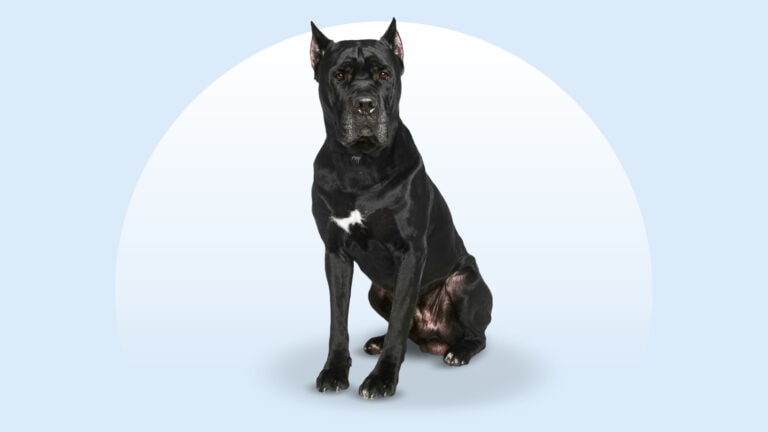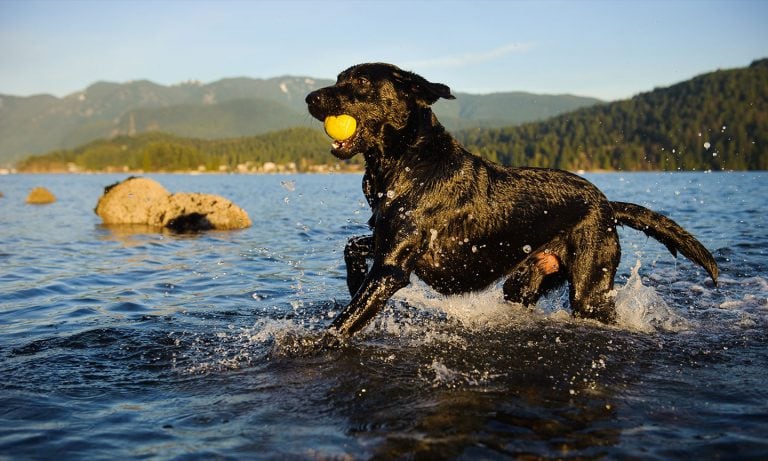Cane Corso vs Labrador Retriever

Breed Snapshot
Best For
The loyal Cane Corso thrives on strong bonds and regular exercise. This Italian breed is best suited to an experienced dog parent committed to consistent training and socialization.
Cane Corso Temperament
You’ll never get bored with a Cane Corso around—you simply won’t have time for it. The training, socialization and exercise needs of this breed will keep you busy throughout their whole life. This is a working breed who was bred to be a guard dog, making the...
You’ll never get bored with a Cane Corso around—you simply won’t have time for it. The training, socialization and exercise needs of this breed will keep you busy throughout their whole life. This is a working breed who was bred to be a guard dog, making them sensitive, serious and intensely loyal. With members of their own household, Cani Corsi (that’s the plural term for the breed) can be affectionate companions, but they’re also naturally alert to new people coming to the house and may react toward strangers—both two- and four-legged—if not properly trained and socialized.
Properly trained and socialized Cani Corsi will be calm and confident. They should ignore strangers and animals who pose no threat to themselves or their people. Thankfully, their high intelligence makes it easy to teach them the difference.
Cane Corso Traits

Breed Snapshot
Best For
The Labrador Retriever is one of the most popular dog breeds in America, known for their friendliness, intelligence and outgoing nature. These high-energy, athletic dogs require ample exercise and thrive in active households.
Labrador Retriever Temperament
Cheerful and animated, this large dog breed has stamina and energy to spare, able to keep up with your family and all your activities. You’ll want to funnel that energy into positive outlets, like outdoor activities and training. And thanks to their high intelligence, learning commands and tricks com...
Cheerful and animated, this large dog breed has stamina and energy to spare, able to keep up with your family and all your activities. You’ll want to funnel that energy into positive outlets, like outdoor activities and training. And thanks to their high intelligence, learning commands and tricks come relativity easy for them. Labrador dogs love having a job to do and excel at things like agility courses and, just like their name implies, retrieving items. In fact, their superior intelligence is why they often make great assistance dogs, working as therapy or service animals.
A people-pleaser, Labrador Retrievers have a pleasant personality and love interacting with humans. Get ready to be showered with lots of affection! They also easily make friends with dogs and other animals, including cats, although not all cats are as excited to meet them as they are—a Lab’s large size and high energy level can be a bit intimidating. Slow and controlled introductions to other family pets will help make the transition go smoothly. Considering the staying power of the Labrador dog breed’s popularity, it’s a safe bet your Lab will fit right in with the all the loved ones you choose to introduce into their life.
While they’re generally good-natured, like any dog breed, Labs may develop aggressive tendencies if they don’t receive proper training or have experienced abuse. Addressing any biting issues early on, providing proper socialization when they are puppies (aka safely exposing them to lots of new people, places and things) and working with a professional dog trainer can help avoid behavioral issues when they get older.




